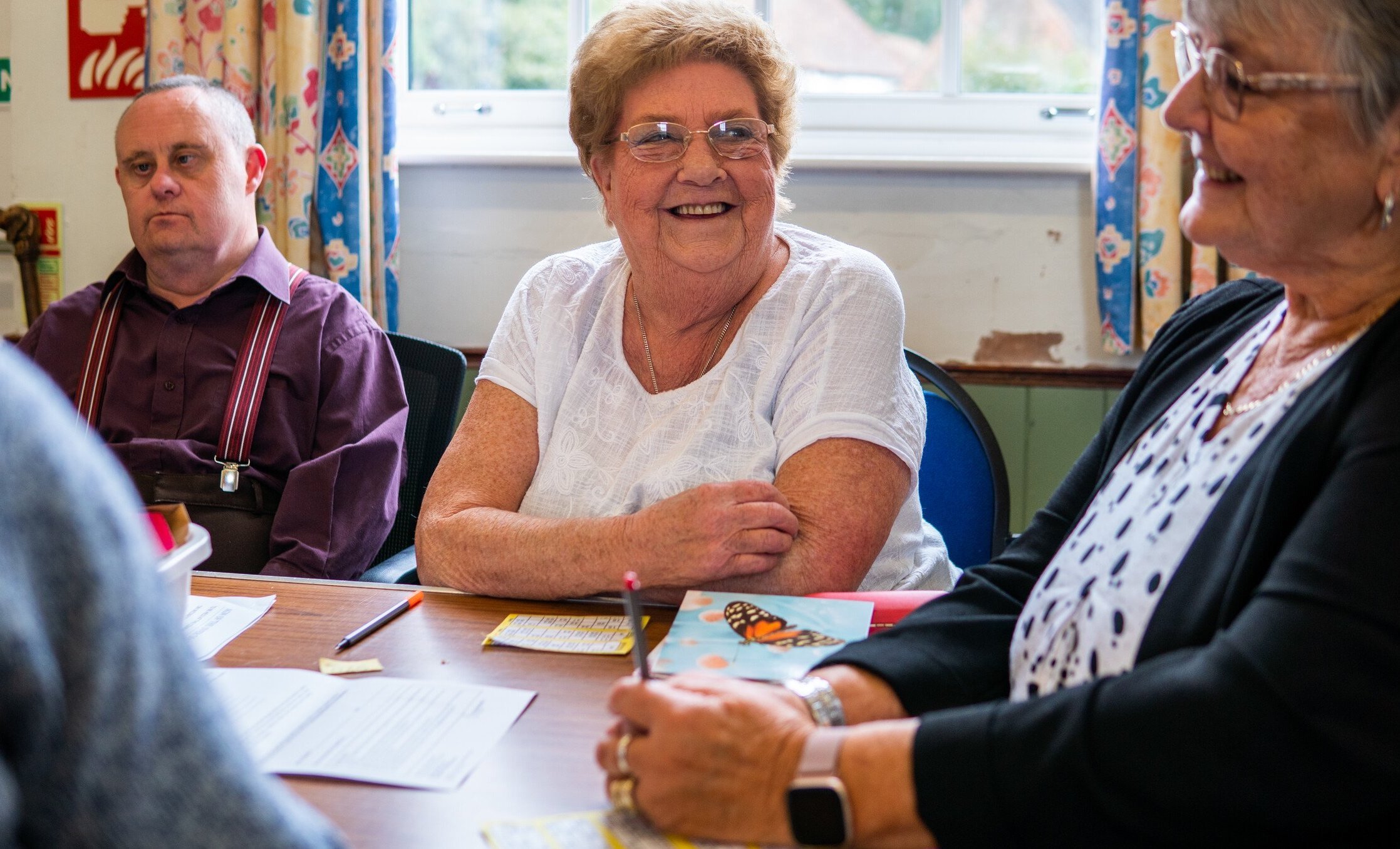Free Wills Month – a guide to writing a will
Tags
legal
A will is a legal document that details exactly what you want to happen to your money, property and possessions (referred to as your ‘estate’) after you die. It’s the only way to ensure your estate and belongings go to the people and causes you want.
However, writing a will can be a daunting process, In fact, Money Saving Expert found that more than half of UK adults don’t yet have one. To encourage more people to think about their will, each March and October, charities and solicitors across the UK take part in Free Wills Month – offering free will writing services to people aged over 55. In this guide we’ll outline how the campaign works, the process of writing a will, and some of the challenges you should be aware of.
Why do I need a will?
A will is the only way to get complete peace of mind that your estate will go to the people you want it to go to. It helps protect your family and loved ones and avoids any disputes over how money and possessions are divided.
Without a will your estate will be shared out according to standard law, which may not reflect your wishes. For example –
- If you’re not married to your partner or in a civil partnership having a will is crucial. Unmarried partners won’t get anything without a will. If you live together, this may mean they’re no longer able to stay in your home after you die.
- If you’re worried about inheritance tax, a will can help. For example, there’s no inheritance tax on money left to your spouse, so you may wish to leave anything over the £325,000 threshold to them in your will.
- If you already have a will but have recently got married in England or Wales, any previous will you held would have been automatically cancelled, this could mean your estate isn’t shared in-line with your wishes when you die.
- A will can outline who you’d like to take care of pets, and prevent them from being rehomed via a shelter.
- If you have particular funeral or burial wishes a will ensures theses are recorded on a binding legal document. However, it’s also recommended that you make your loved ones aware of these wishes separately as well, in case your funeral plans move along faster than the execution of your will.
How to make a will in the UK for free
Many charities offer fee-free will-writing by solicitors – this is how Free Wills Month works. While it’s not a requirement, many hope that by funding this free service participants will leave them gifts in wills. Charities can pay hundreds of pounds towards your will writing, so it’s worth seriously considering whether you can afford to leave them something when using the scheme.
The scheme operates in different parts of the UK each year. For 2024 the following areas are taking part. If your location isn’t listed it may still be worth registering.
- Birmingham
- Bolton
- Bournemouth
- Bristol,
- Cardiff
- Chester
- Chesterfield
- Cornwall
- Cumbria
- Derbyshire
- East Cheshire
- Essex
- Exeter
- Glasgow
- Gloucestershire
- Hampshire
- Huddersfield
- Hull
- Ipswich
- Kent
- Lancaster
- Leeds
- Leicestershire
- Lincolnshire
- Liverpool
- Manchester
- Mid Wales
- Middlesbrough
- Milton Keynes
- Newcastle
- North Wales
- Norwich
- Nottinghamshire
- Oxfordshire
- Plymouth
- Portsmouth
- Preston
- Scarborough
- Sheffield
- Shropshire
- Southampton
- Stockport
- Stoke-on-Trent
- Swansea
- Torquay
- Wakefield
- West Wales
- Wirral
- Wolverhampton
- York.
To get started you’ll need to register on the Free Wills Month website. The form will ask for your postcode in order to find your nearest participating solicitor. Then, all you’ll need to do is contact the solicitor and mention the Free Wills Month scheme.
Another free scheme – Will Aid takes place in November. Again, it’s funded by a few different charities – Age UK, British Red Cross, Christian Aid, NSPCC, Save the Children, SCIAF and Trócaire. Hundreds of solicitors all over the UK take part in the scheme, waiving their fee in favour for a voluntary £100 donation that will be split between the partner charities (however you can donate less if you can’t afford this). Will Aid is open to anyone over the age of 18, and you can sign up now through their website.
How much does it usually cost to make a will with a solicitor in the UK?
If you’re making a will directly with a solicitor who is not taking part in Free Wills Month, or doing so at any other point in the year, it’ll usually cost upwards of £150.
You can chose to write one yourself, without going through a solicitor by using a will writing service – these are usually online services that provide you with a template and support tools. The cost of this is lower and can usually be done for under £100. However, will writing itself isn’t a regulated financial service. This means you may not have the same protections if something goes wrong or there are any legal complications as you would have if you went through a solicitor, as solicitors are regulated. It’s also important to remember that if there’s a mistake in your will, it could be invalid.
Some will writing services do follow codes of conduct set by voluntary trade bodies such as the Society of Trust and Estate Practitioners, the Institute of Professional Willwriters (IPW) or the Society of Will Writers (SWW).
It’s always worth asking whether a will writing service you’re considering is a member of a trade body, or if they have an in-house solicitor who can review your will.
i. Our partner Co-op Legal Services offer will writing services that are regulated by the Solicitors Regulation Authority. Find out more here.

What are the disadvantages of a free will?
You can only get what’s called a ‘simple’ will through free services. This is where a person leaves their entire estate (all their money and property) to their spouse or partner, or to their children. an Unmarried person with no children they may instead leave their estate to another adult or a charity.
However, families and estates often aren’t this straightforward. If you have a children from a previous marriage, have a complex estate or overseas properties, your will writing may be a little more complicated and not suited to this service.
4 steps to writing a will
1. Write down a list of your assets
This should include everything you own that you want to pass on. Be sure to list the value of each asset. You’ll want to include any outstanding debts too as this may reduce the total value of your estate. Once you’re clear on your assets you can share this with your chosen solicitor, or begin using a will writing service. If you have foreign assets you may want to consult a solicitor for legal advice on how to include these in your will.
2. Make your choice of executor
This is the name of the person or people you trust to carry out the wishes outlined in your will. They may be family members, friends, or a professional such as a solicitor or accountant. It’s important to discuss being an executor with your chosen person before starting your will.
If using a will writing service or taking part in a free scheme you may assume you need to appoint them as your executor, but this is not the case, and doing so could mean you face additional fees. Be sure to check and voice your wishes on who you want your executor to be when your will is still in the draft stage.
3. Think carefully about the distribution of gifts and assets
Your choice of beneficiaries (the people you want to leave your assets to and any charitable donations) is often the part that most people have already thought a bit about. Again, if you require anything other than a straightforward will where you have multiple beneficiaries from different families, you’ll likely need a solicitor to ensure your wishes are recorded correctly, rather than a free will scheme.
4. Choose witnesses to complete your will
If you’re in England and Wales you’ll need two witnesses present when you sign your will to make it legally binding, if you’re in Scotland you’ll need at least one. The witnesses cannot be beneficiaries named in your will, be related to you, or have any personal interest in your will. They’ll also need to be over 18 years old, and of sound mind. A solicitor can be one of your witnesses if you wish.
Your witnesses must have a clear view of you signing your will, and you must have a clear view of them signing too, as they may be called to give evidence in the event that your will is contested.
In England and Wales your witnesses may be able to sign your will virtually via video. the Government website has more information on this.
Sources –
- https://freewillsmonth.org.uk/
- https://www.moneysavingexpert.com/family/free-cheap-wills/#cheap
- https://www.willaid.org.uk/
- https://www.thelawsuperstore.co.uk/wills-probate/help-and-advice/who-can-witness-a-will-in-the-uk
Read more later life articles

12 summer safety tips for the elderly
It’s important for everyone to take care in hot weather – anyone can become unwell if they’re exposed to soaring temperatures. However, for older people

Live-in care vs other types of care
Live-in care vs other types of care Navigating elderly care options for a loved one is a significant decision. While care homes are a common

Defining Dignity in Later Life – Interview with Liz Lloyd
We talked to Liz Lloyd about personal and social perceptions of age, the challenges of identity, empowerment and choice.

The Challenges of Vegetarians and Vegans Living with Dementia
We talk to Amanda Woodvine about the challenges faced by older vegetarians and vegans receiving care. Read more here.

How much does live-in care cost?
How much does live-in care cost? Live-in care provides one-to-one support in the comfort of your loved one’s home, but how much does it cost?

How much does respite care cost?
Respite care offers short-term relief for primary carers, and the cost can vary widely depending on the type of care, location, and level of support